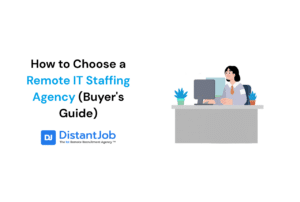H.R. 842 is officially known as the PRO Act and was passed in the House on March 9 this year. The Pro Act has many supporters, while many others are against it. This seemingly simple Act with three main points is confusing for many. While on the surface it does look like it protects the rights of workers, does it really do that? How will it affect your business and your relationship with freelancers? Let’s find out.
According to Union leaders,
- The PRO Act doesn’t give US-based freelancers any freedom.
- Freelancers will be treated as employees and not as independent contractors.
What does this mean for a business owner like you?
- You’re now responsible for giving all the necessary employee rights and perks to a US-based freelancer because they will no longer remain freelancers. They will now be your employees.
- You’ll be bound in an employer-employee contract and not an independent contractor agreement.
The PRO Act has come into existence to give individual contractors a voice. Employers can no longer misclassify workers as independent contractors.
What is the PRO Act?
The PRO Act is a bill that provides protection for workers. According to Union leaders, the PRO Act is in favor of workers and will make it easier to organize union drives and elections. In simpler words, it protects a worker’s rights.
Here’s what the bill states:
“An individual performing any service shall be considered an employee and not an independent contractor, unless—
“(A) the individual is free from control and direction in connection with the performance of the service, both under the contract for the performance of service and in fact;
“(B) the service is performed outside the usual course of the business of the employer; and
“(C) the individual is customarily engaged in an independently established trade, occupation, profession, or business of the same nature as that involved in the service performed.”.
According to the PRO Act Fact sheet by the Education and Labour Committee, the PRO Act is beneficial for all workers.
How Will the PRO Act Impact Your Relationship with US-Based Freelancers?
1. With the PRO Act, Workers Now Have a Voice
Thanks to the PRO Act, the protections to workers have now been expanded under the National Labor Relations Act (NLRA), an 85-year-old law that protects workers’ right to join together to form unions or engage in concerted efforts to ensure better working conditions.
When the Congress had passed the NLRA long ago, the main purpose was to:
“encourage collective bargaining, and to curtail certain private sector labor and management practices, which can harm the general welfare of workers, businesses, and the U.S. economy.”
The NLRA covered only “employees” and did not make a mention of independent contractors and freelancers.
Now, because of the PRO Act, independent contractors and US-based freelancers will be protected.
2. Employers Can No Longer Misclassify Employees as Independent Contractors
Because of the PRO Act, business owners can no longer term their employees as independent contractors or freelancers. Business owners usually do this to prevent workers from forming unions to negotiate for better pay and working conditions.
The “ABC” test will be used to check if the employers meet the three key criteria to prove that a worker is an independent contractor.
The criteria is,
“(A) the individual is free from control and direction in connection with the performance of the service, both under the contract for the performance of service and in fact;
“(B) the service is performed outside the usual course of the business of the employer; and
“(C) the individual is customarily engaged in an independently established trade, occupation, profession, or business of the same nature as that involved in the service performed.”
If, as a business owner, you can’t prove that your worker is an independent contractor or freelancer, you will be penalized.
As an employer, you will now be more accountable for your employees. Business owners and employers can no longer evade accountability regarding the perks and benefits, etc, to their full-time employees.
3. The part “B” of the PRO Act Could Force You to Hire Employees Instead of Freelancers
The part “B” of the PRO Act states that:
“An individual performing any service shall be considered an employee and not an independent contractor, unless—
“(B) the service is performed outside the usual course of the business of the employer”
This means that the independent contractors and freelancers offering skilled services will be pushed to work “under” employers as full-time employees. This is ironic because it takes away a freelancer’s purpose of choosing the freelance industry altogether.
Moreover, if you’re a business owner, this will put pressure on you to take responsibility for US-based freelancers who provide skilled services because they are no longer freelancers. They now become your employees and they’ll have all the rights of an employee..
4. It is More Beneficial for Employers to Hire Freelancers or Remote Workers from Outside the United States of America
As a business owner, you might only be looking for a freelancer and not a full-time employee. You probably don’t have enough resources to hire a full-time US-based employee right now, especially if you’re a startup. What do you do in that case?
Hiring a US-based freelancer will only put a lot of pressure on you because you will be forced to have an employer-employee contract with them. In such a situation, it is best for you to hire a remote employee from outside the United States of America. This will ensure dedicated talent for your business without dealing with the complications that come with the PRO Act.
Remember that the freelance economy is a global one. If not from the USA, you can always look for global talent. One act from one country doesn’t change the global scenario. You can always hire an expert remote recruitment agency to help you find the best talent from around the world for you.
Wrapping Up
The PRO Act is not as simple as it seems. It is a double-edged sword. It has both pros and cons, depending on which side of the spectrum you’re on. It can be beneficial as well as restricting for freelancers. For businesses, it is quite binding. Time will tell about how well accepted it is and if there are any amendments that can be expected. For now, it is best for business owners to look for full-time remote employees or for freelancers outside the USA if they want to safeguard themselves from extra expenditure and responsibility. DistantJob is experienced in headhunting and hiring the best remote talent from across the globe for your business. Get in touch with us to know more.





